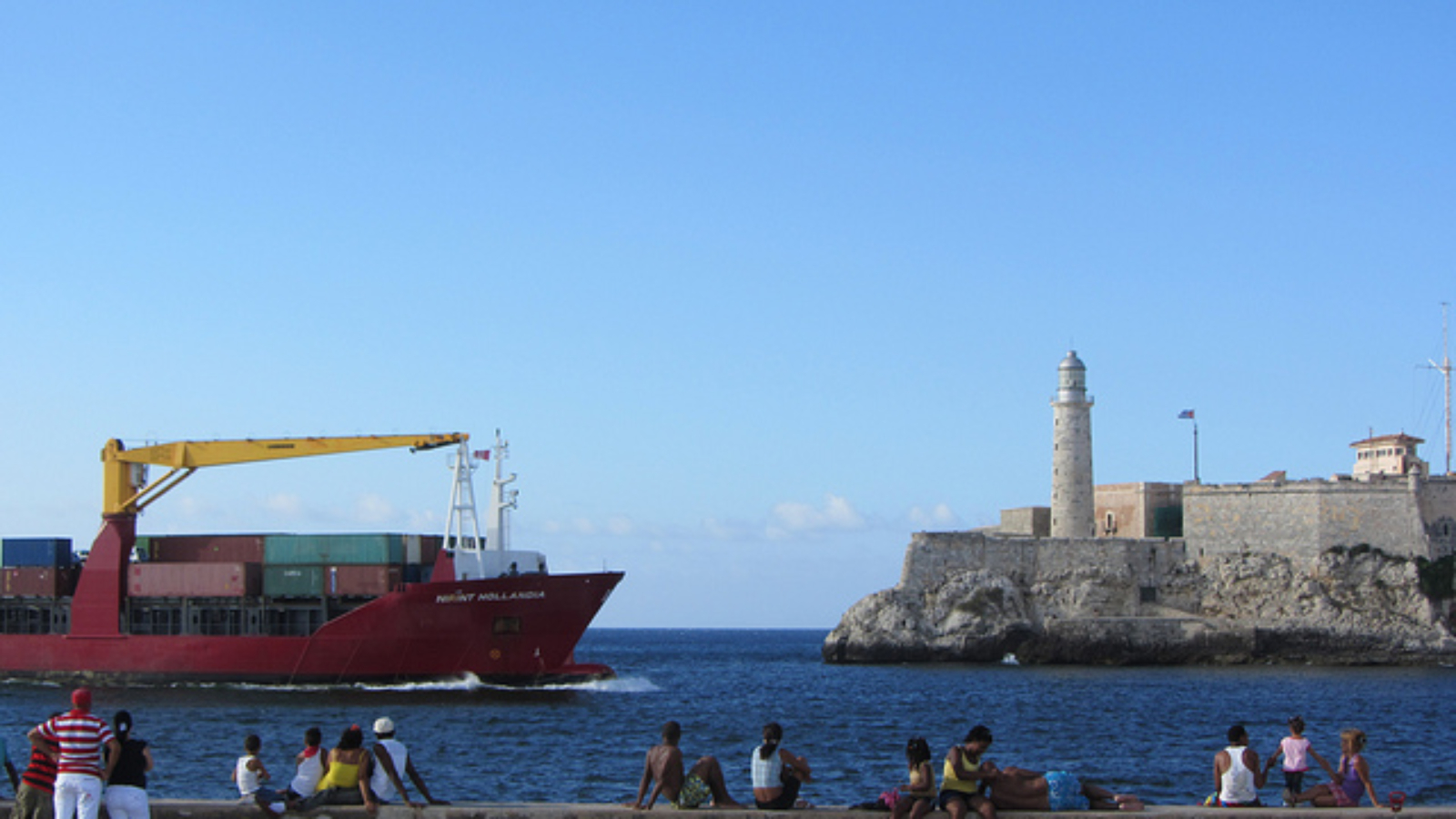By Lawrence Gutman
What a difference fifteen weeks makes. When I wrote about the Cuban trade delegation led by New York Gov. Andrew Cuomo in April, Washington was captivated by the prospect of renewed bilateral ties. With few exceptions, Republican members of congress denounced President Obama’s engagement with “terrorists.” Democrats, also with few exceptions, happily tweeted or retweeted photos of their or their colleagues’ visits to Havana under relaxed travel regulations. Back in those “early days” of normalization, the energy behind the issue of U.S.-Cuban relations was intense and predictable. Jay Z and Beyonce’s anniversary trip to Cuba in April 2013 had provoked a firestorm of condemnation and media attention. President Obama and President Castro’s December 2014 announcement had a similar effect, and quickly energized advocates and opponents of reconciliation. As a pre-eminent foreign policy issue, or at least as fodder for the 24-hour news cycle, the U.S.-Cuban reset had teeth.
Fast-forward to the present, and the issue is considerably less toothy. Full diplomatic relations have been restored (though the U.S. embassy in Havana won’t open until August 14), and the once-ferocious debate over U.S.-Cuban relations has largely receded. This in spite of the fact that bilateral trade is increasingly viewed as essential for U.S. economic prospects in the Caribbean. On July 22, Marriott International, Inc. CEO Arne Sorenson returned from his first Cuban visit to affirm, “steps taken by President Obama … have launched a bit of a global race involving business from other countries to leave as little as possible for American business when the restrictions are lifted altogether.” Democratic Sen. Amy Klobuchar of Minnesota anticipated Sorenson’s view when she testified, in early June, “What is going to happen is Americans are going to flock to Cuba, they’re going to be staying in Spanish hotels, eating German food and using Chinese computers.” It may be exaggerated (German food?), but Klobuchar’s anxiety underscores how rapidly European and Asian—not to mention Latin American—businesses have responded to the prospect of near-term U.S. investment by growing their economic footprints on the island.
As figures like Sorenson and Klobuchar emphasize the importance of engaging Cuba’s globalized and increasingly crowded markets, the debate among U.S. politicians, pundits, analysts, and activists over Cuba is quickly subsiding. There isn’t a great deal of opposition to normalized trade at the moment, and there isn’t a lot of vocal support for it either. After Hillary Clinton re-affirmed her opposition to the embargo last Friday (in what seemed less like a rousing speech than a straightforward statement of policy), the Democratic frontrunner’s comments barely made a dent in the 24-hour news cycle or drew responses from her rivals. Does D.C. know something the rest of us don’t? In fact, the relative silence surrounding re-engagement with Cuba on Capitol Hill may be the surest sign that the embargo’s days are truly numbered. Only yesterday, it seems, engagement with Cuba was among the most contentious issues in U.S. foreign policy. But not anymore.
Where has the energy gone? There are the usual explanations. Cuban-American hardliners in South Florida are aging out of political activism (as are some of their most ardent representatives in Washington) and their children and grandchildren are increasingly removed from the ideological conflicts of the Cold War. Consequently, Cuban-American lobbying organizations have less capital and influence than ever before. Fidel Castro is no longer in power, and his younger, more reform minded brother doesn’t cut the same imposing figure. Venezuela’s decline as an economic patron has compelled Cuban officials to negotiate more openly with U.S. counterparts. Not to mention that the drip drip quality of U.S. capital into Cuba under limited terms has granted the renewal of trade an aura of inevitability. It probably doesn’t hurt that Stonegate, a well-known commercial bank in Florida, signed a correspondent banking agreement with Cuba’s Banco Nacional de Comercio in Havana several weeks ago.
A recent Pew Research poll is especially clear on why the dust seems to be settling on the half-century fight over U.S. policy toward Cuba. Never mind the fact that Democrats or even Cuban-Americans now support the resumption of trade across the Florida Straits. Support for trade among conservative Republicans has jumped from 40 percent in January to 55 percent today. This is a remarkable statistic, and the clearest evidence that support for the Cold War policy of isolation is truly collapsing. In fact, there is no longer a single electoral or demographic sector in the U.S. with majority support for the embargo.
The first GOP presidential debate will be held this Thursday, and it’s plausible that U.S.-Cuban relations will fly completely beneath the radar. Republicans have rarely been squeamish about expressing their support for the embargo in the past, but the 2016 candidates have barely commented (or been asked) about their views on restored trade. There were few public condemnations when the Cuban flag appeared over a new embassy in Washington, and it’s likely that there will be little controversy when Secretary of State John Kerry raises the U.S. flag over the former interests section in Havana this month. Marco Rubio, Florida’s Cuban-American senator and the GOP field’s strongest advocate of the embargo, is certainly opposed to a liberalized trade policy. But most of his constituents aren’t, and he’s not organizing his campaign for the Republican nomination around the issue. If the candidates are asked about Cuba this Thursday, the question will be out of step with what they’ve been focused on thus far. For all intents and purposes, the fight over trade with Cuba is over.
*****
*****
Lawrence Gutman has conducted research on governance and foreign investment in Cuba as a Fulbright Hays Fellow and Tinker Foundation Fellow. He holds an M.A. in Latin American history from the University of Texas at Austin, and is based in New York. He tweets @lawrencegutman.
[Photo courtesy of Stephen Colebourne]
